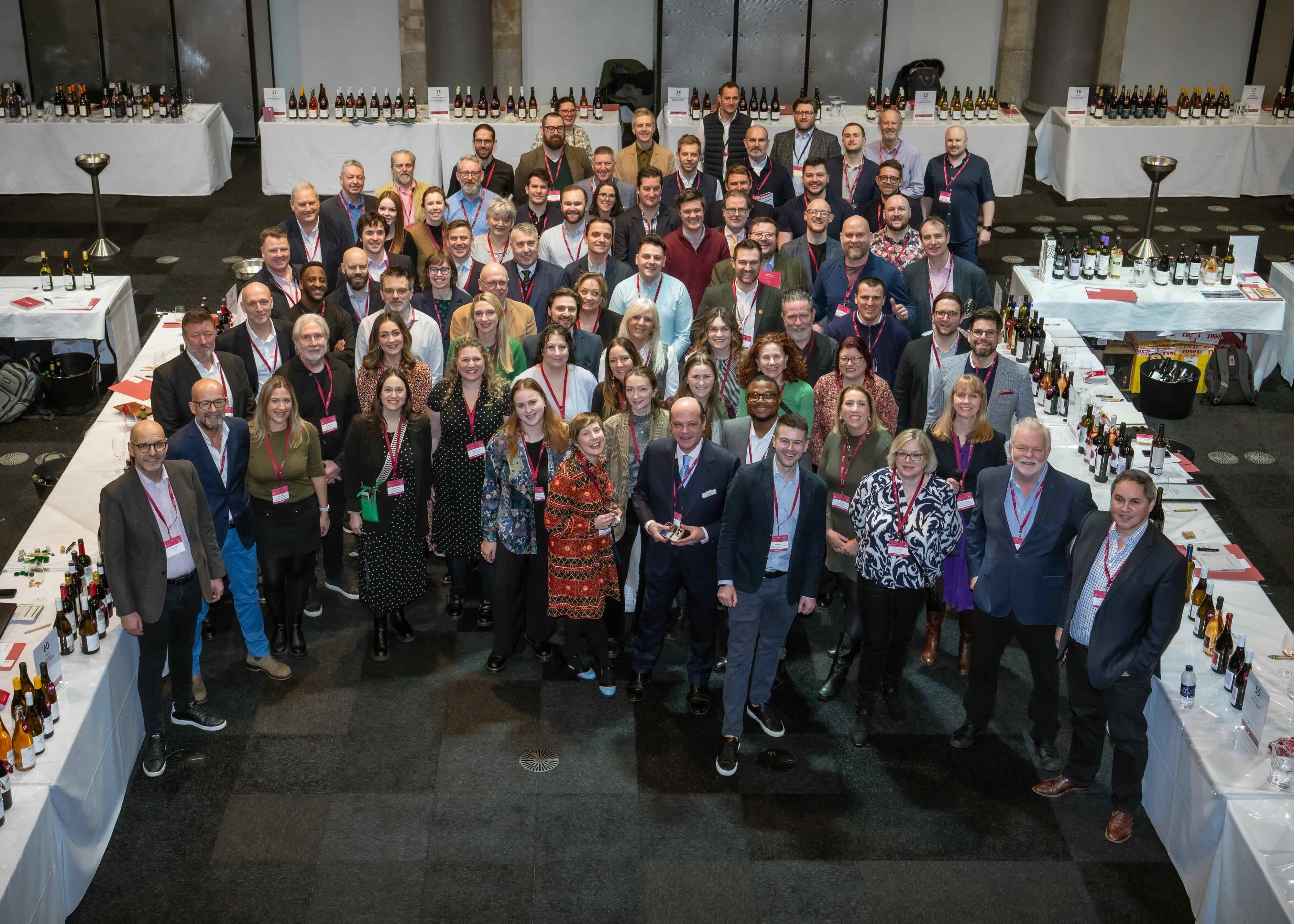If you strip back all the noise, PR and marketing that all the major wine distributors have to use to be heard it is ultimately how successful they are at “getting the basics right” with their customers in terms of range, delivery and service, that will determine how successful they are.
That’s very much the business mantra that Andrew Bewes has lived by all through his 16 year plus tenure as head of Hallgarten & Novum Wines. But it is also a corporate vision and strategy that is crucially shared with the Coterie Holdings executive team as together they look to build the most effective and coveted wine distribution business in the UK.

"Power lies in distribution and access to the market," says Hallgarten's managing director, Andrew Bewes
Being able to not just support but go the extra mile in delivering to your customers - across the on and off-trade - what they need, when they want it, is now even more important than ever. Particularly in the on-trade, where customers are under so much more pressure from increased costs across the board, says Bewes.
“Power lies in distribution and access to the market,” he stresses. For premium suppliers “access” is becoming “harder and harder” to reach in an on-trade market that is contracting and putting rival wine distributors even more in competition as they fight over fewer opportunities and customers to trade with.
The onus is even more now on those distributors to offer far more than just wine to their range of services, and forge true relationships where you are acting as a business partner and consultant to each and every customer is crucial, he adds.
Bewes says there are probably around 15,000 on-trade outlets across the country that Hallgarten is targeting with its mid to premium wine offer; this is out of an overall on-trade network that has shrunk from 120,000 outlets to under 100,000 in a relatively short period of time.
But he stresses that these 15,000 outlets is what suits its current portfolio, but the portfolio will continue to evolve and the target audience change broaden in the future.
“It is the eternal question. Is our buying team buying for the sales team and customer base of today or tomorrow? But it has ever been thus. We are believers in being a specialist supplier for each of our customers. But we do have a quality line below which we won’t go, particularly in the on and independent off-trade,” says Bewes.
On-trade buyers and sommeliers are looking to consolidate, not increase, the number of suppliers they work for in order to maximise the buying power they have, explains Bewes.
Interestingly he points to a survey that was done back in 2007 during his days at Liberty Wines that analysed the wine ranges of the major distributors and found that on average they had around 800 wines in their portfolio.
Fast forward to 2025 and those same operators now have lists of at least 1,500 wines, with some topping 2,000 wines. Yet over that time both the retail and the on-trade markets have contracted significantly with far fewer venues and customers to work with, and with contracted wine ranges.
“It means we are all now running around chasing a smaller market, smaller wine lists with far less SKUs in the off-trade. It’s been a mad 18 years. It’s now a given that we all have great quality ranges which puts even greater focus onto everything else. The support, the training, the service and the commercial analysis and advice,” he says.
Professional standards
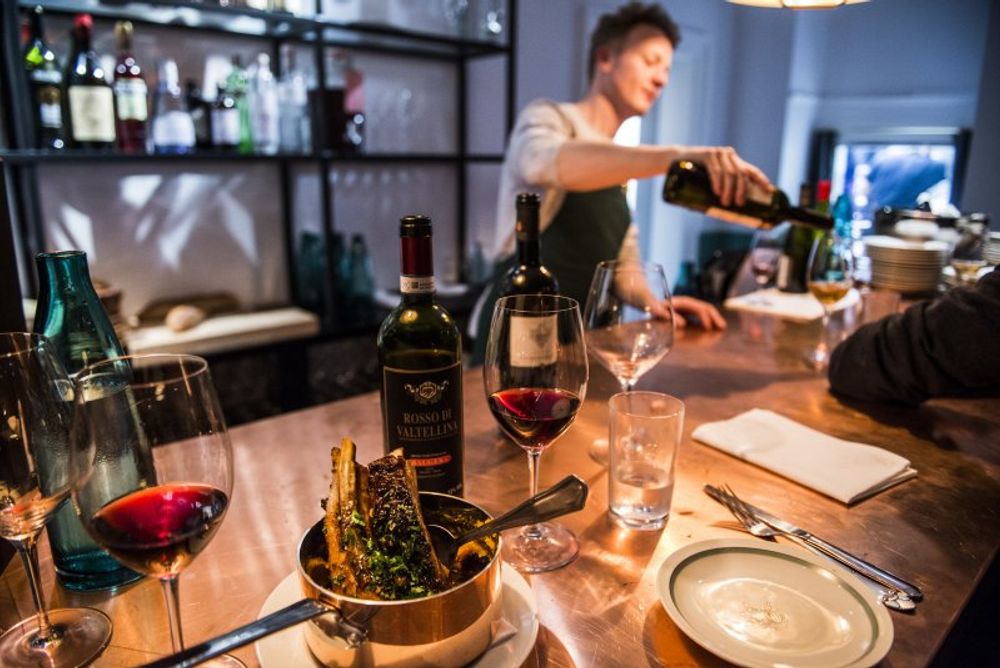
With fewer potential on-trade customers to go after the competition between the major wine suppliers is even more intense
The pressure of being in business and staying in business has never been greater, claims Bewes.
Hence why it “positions” itself as a “business partner” where its sales teams are going to talk to their customers having “done their homework and analysed where we can add value”.
But equally it needs to make sure it is “very focused on adding value to the right customers given our portfolio strategy and our history,” says Bewes, and is not distracted by looking to work with customers where there is not the right fit.
It’s a way of working that has really made a big impression on Will Oatley since joining the business from Louis Latour Agencies earlier this year.
He explains: “What has really struck me about Hallgarten is the loyalty of the customers to the business. Our sales team goes out and they very much form a partnership and a bond with their customers. I have never seen that to this level before.”
Which is why working in wine is a vocation not simply a job, stresses Bewes. This puts a greater focus on the type of people that Hallgarten and the trade needs to be recruiting and bringing into the business.
“What we look for more now more than ever is someone who has got what it takes. It boils down to professionalism. Our team needs passion for what they sell, but they also need passion for who they are selling to and a real understanding of what their customer needs are.”
The Coterie deal
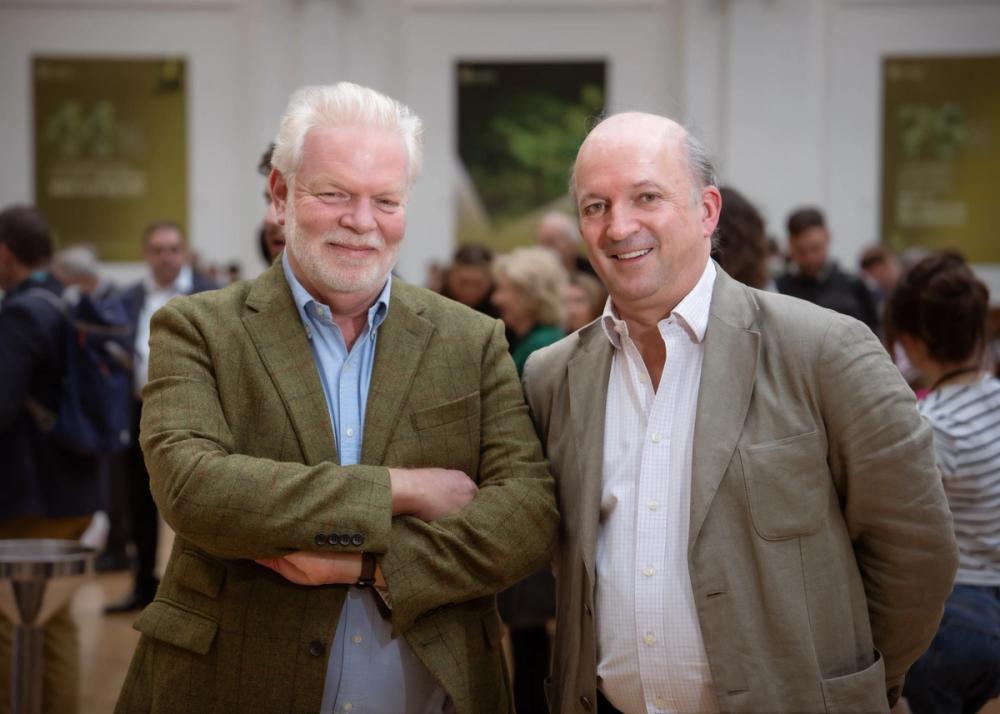
Andrew Bewes with Coterie Holdings' chief executive Michael Saunders who are "aligned" on what the new group can offer both its producer partners and its on and off-trade customers
All of which means the Coterie deal, and all the investment and strength that came with it, could not have come at a better time.
Hallgarten’s previous owners wanted to sell, and Bewes needed to find a new partner that could not only take over the business but take it to another level. That is very much where we are now 18 months down the line, he says.
“We have moved to an active and passionate ownership who are very much involved in the UK wine industry. So lots of new wines to assimilate into the business, lots of new energy into prospecting.”
The Coterie deal means Hallgarten has been able to “really open up the throttle” and make the most of the opportunity.
“It was just amazing timing and the stars really aligned, particularly with what was happening in the industry at the time,” says Bewes.
“We are very much aligned in terms of vision of possibilities, not just in the UK but beyond, which is certainly a focus of the group.”
There also been a need for some change - or a “coming together” as Bewes puts it - particularly in the buying area where Andrew Shaw has come in to head up portfolio buying and manage the overall range that is now being sold and managed by Hallgarten, Lay & Wheeler and Global Wine Solutions.
That “cohesive approach to buying” is something everyone in the business is embracing, and it really comes to making the best use of the “strengths” and skills there are already within the group - including three MWs - and to make sure they are collectively acting in the best interests of the overall group, adds Bewes.
A good example of its new group approach is in The Cellar Series collection which has been put together by Lay & Wheeler’s Robert Mathias MW, and négociant partner La Compagnie Médocaine des Grands Crus, to bring the best of Bordeaux’s drinking vintages from top chateaux direct to the market. This has opened up a new trading opportunity for Hallgarten and its customers.
There is also now the opportunity for both Lay & Wheeler and Hallgarten customers to benefit from each other’s ranges - where it is channel appropriate. Lay & Wheeler is a long standing Hallgarten customer prior to the Coterie deal so that buying, selling relationship continues in any case.
“Where Lay & Wheeler brings additional strength to us is in Bordeaux, Burgundy and at the top end and we bring strength to Lay & Wheeler on the rest of it. So it is symbiotic,” says Bewes.
Which from a supplier and producer’s point of view is particularly attractive as you now get access to other elements of the market, both in the UK and internationally, that you did not have before.
“We have a plan for each key producer and their range,” he says. “It’s a new challenge for us to have a retailer alongside us, but Lay & Wheeler are very much a partner.”
But from a Hallgarten perspective it has the “autonomy” to do what “we are expected to do and what we need to do,” he stresses. “The Coterie link is at a senior management level only.”
“There is a Coterie executive team that meet to discuss exactly that strategy and how we move forward. Michael (Saunders - Coterie chief executive) takes a very active interest in what we are up to and is leading the charge in many areas where he has the contacts and experience. It is only added value to what Hallgarten has traditionally done and brought some additional focus.”
What is also particularly exciting for Hallgarten is that there is continued investment across the Coterie group which “will benefit all constituent parts of the group,” he says.
Joining not just Hallgarten but the Coterie group was a key factor for Oatley in wanting to come on board. He explains: “You can see the ambitious growth plans and you can see the buzz of excitement in the team. You can really sense it in meetings. There is a belief. It is also important to maintain modesty in that as well, which I think Hallgarten does. We have a humble sales team who are not trying to over promise. I was very fortunate to be in the right place at the right time.”
Quality of service

Will Oatley says he "jumped" at the chance to be joining Hallgarten at such a key stage in its history
He admits it’s also been “frenetic” behind the scenes, as Hallgarten has looked to capitalise on the deal by bringing in a raft of new producers and putting in place all the extra support and operational functions to make sure it can maximise what it is able to do with all this new potential business.
“We have come to a position where we have reinforced the team to facilitate growth internally and made some significant appointments across the business, including Will, which takes a lot of weight off me in terms of overseeing the commercial side of the sales teams,” explains Bewes.
The challenge has been to keep the absolute focus on quality of service,” he stresses, particularly at a time when so many of its on-trade customers are struggling with increased costs and taxes.
“We make sure we are doing the basics really well.”
Customer support, he adds, is one of the areas where he has seen the biggest change during his 16 years with the company.
“When I arrived we had more sales people than support people and now we are probably two thirds support and one third front line. Which is probably about right. Retention of accounts is fundamental to everything we do and you can’t do that without having the levels of support that is required.”
Oatley’s role as commercial director is to ensure those “basics” mean its national on and off-trade sales teams are totally “assimilated” with the new range and on top of how they can help their customers sell more of both the new and existing producers’ wines.
He says he “jumped” at the chance to join the business when the opportunity came up and it has been great to see how the company operates now being part of it.
“Hallgarten’s commitment to customer service is absolutely phenomenal and unsurpassed,” he says.
That focus has seen another four people added to its national off-trade accounts team and four more to the national on-trade which will help it see “exponential growth” across these sectors. Within the national off-trade team are two new executives that can provide “an extra layer of support” to then free up the managers to go out and pitch for new business.
His role now will be to help implement and steer a three year programme to drive the national side of the business even further with “expansion into sport, leisure, stadiums, national hotel groups and the supermarkets.”
“We have definitely got the agencies and the personnel to do it and now we just need to deliver,” he adds, which also means making sure it is pushing the “right wines for the right channels”.
Bewes agrees: “We have a broad portfolio which will always be in a constant state of evolution. New wines bring potential new channels for us to operate in. We have all the competencies required to supply at any level and our customers increasingly appreciate this.”
The task now for the management and sales teams is to make sure it is distilling its enlarged portfolio so that each customer has a targeted, bespoke range to choose from and they are not being “bombarded” by the entire range.
Bigger scale
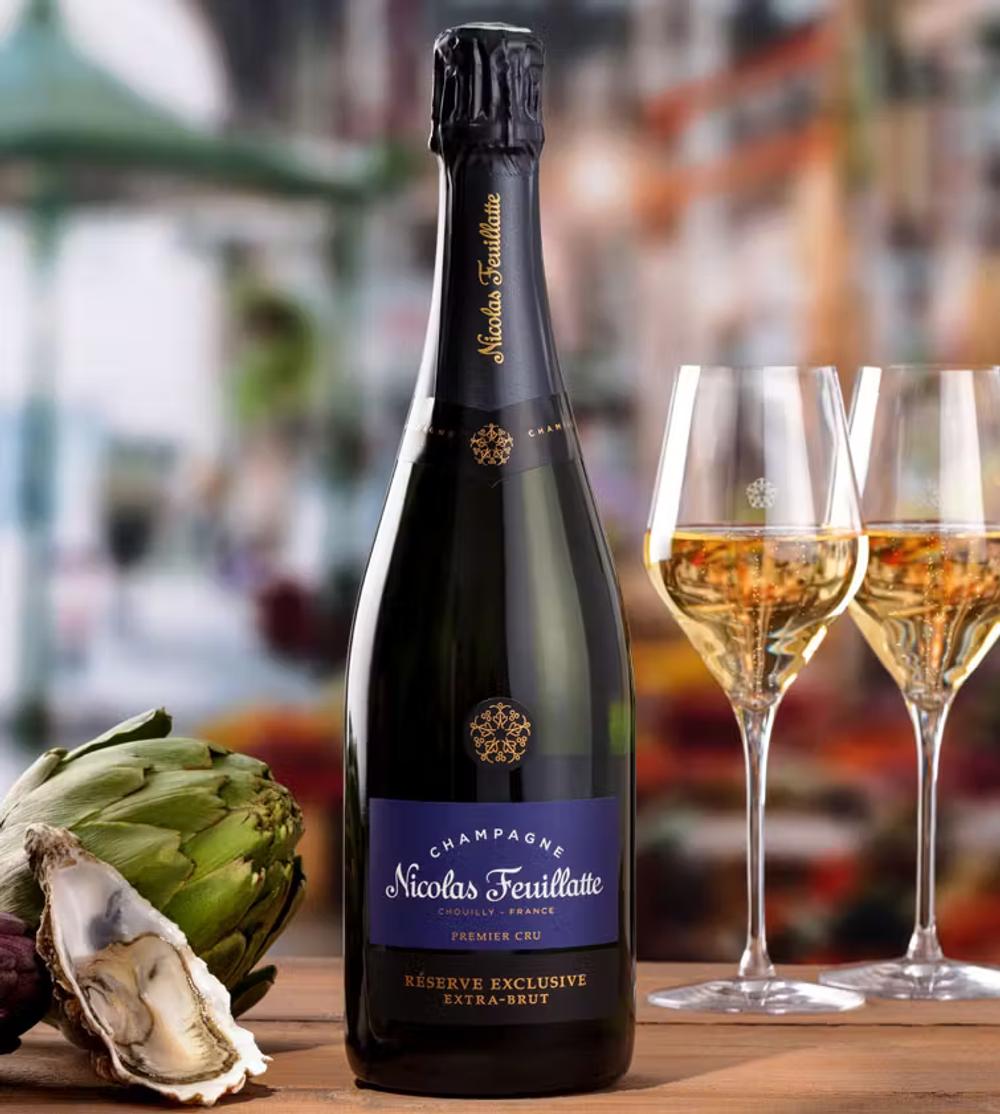
Bringing Champange Nicolas Feuillatte into Hallgarten was a key strategic moment for the business
The push into bigger national accounts won’t change the overall on and off-trade mix of Hallgarten customers with the business still being 75% on-trade and 25% off-trade. What has changed post-Coterie is that Hallgarten now has some larger producers in the portfolio that already had major multiple listings - like Champagne Nicolas Feuillatte. This necessitated greater depth of support from Hallgarten’s national accounts team, explains Bewes.
“Signing up a service level agreement with a major customer is not something we do lightly,” he explains. “It needs to be sense-checked and we need to work with our partners at LCB and make sure our stock is in the right place at the right time. It is pulling together a lot of disciplines before we sign on the dotted line,” says Bewes. “We are not doing anything different we are just doing it on a bigger scale.”
He is also quick to stress how crucial its relationship with LCB is and how strategically important it was for Hallgarten to outsource its own logistics and delivery operation eight years ago.
“That was a major thing for us to do as a business, but it was absolutely the right thing to do.”
The LCB partnership has given Hallgarten “the level of service we need,” he adds. “They have been fundamental to us being able to go out and win business. We have a great relationship with them, and they really do understand what the needs of our customer base is.”
Out to tender
All in all, the Coterie deal also has made for a stronger overall business where Hallgarten is a significant part of a group that also owns: Lay & Wheeler, and its long-standing access to fine wine retail and private customers; Coterie Vaults, the state-of-the-art purpose-built fine wine storage facility which is now being used by some of Hallgarten’s high end customers; Jera an investment vehicle for high net worth individuals to borrow against their wine collections- something which is used by Hallgarten’s trade customers too; and Global Wine Solutions supplying wine to the super yachting community.
All of which makes Hallgarten a potentially far more attractive distribution partner to work with “as the trade part of the business” and opens up customers to fine wine opportunities, in particular, it could not offer on this scale before.

Royal Ascot is one of a number of key new hospitality contracts that Hallgarten has won
It has crucially put Hallgarten on a different level when going out to tender and pitch for more high profile accounts. The wider strength of the business was a key factor, for example, says Bewes, in tendering and winning accounts like the Jockey Club, on top of Royal Ascot and Goodwood.
The business now crucially has “proof of concept” when tendering for major corporate accounts and sporting events and stadiums, says Bewes. “We and LCB are able to cope with 50 deliveries going into Royal Ascot in a week. We can handle all the complexity that this brings.”
What the Coterie positioning has done is ensure Hallgarten now gets the “face to face time” for it to be able to make its case and set out what it can do and “open that opportunity”, he adds.
It is also very much a learning process, says Oatley, and knowing exactly what it is that trade accounts are looking for and what the tender process and cycle is.
“It is also really delving into where we can add value,” says Bewes.
Having case studies and testimonials from the likes of Royal Ascot is crucial when going out looking to get other similar deals over the line.
He remembers one of the initial big deals that Hallgarten did years ago was with the McDonald hotel group. After a year of working together it got a testimony from them to say its wine sales had gone up by 7%.
A testimonial that was “dynamite” for the business to then go to other businesses and try and win their contracts too.
“We have to convince the customer that coming to us will bring commercial benefits and additional margin into their business - what does it mean for them. That is what we have been focusing on,” says Bewes.
Operationally, it is “painful in the extreme” for any restaurant or hotel business to change their wine list as it involves retraining their teams and disrupting their supply chains, says Bewes. Hallgarten needs to be ready to answer all those questions and present convincing reasons and solutions on how working with them will be to their commercial advantage.
“Success breeds success. We have so many testimonials from top businesses and customers around the country that we are able to convince people that we should be brought in for consideration,” he adds.
Winning business
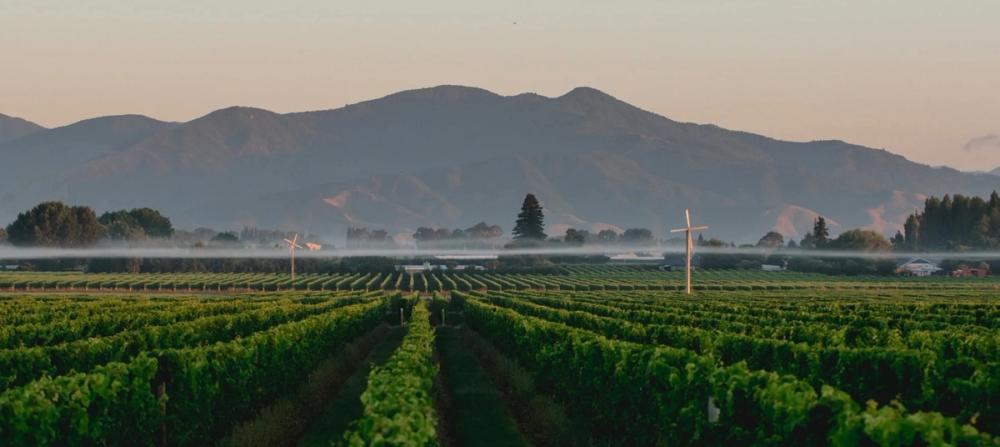
Saint Clair in New Zealand is one of a number of high profile producers that have joined Hallgarten following the Coterie deal
These tenders represent significant investment and a business like Hallgarten has to weigh up the long-term implications any proposed collaboration.“Each needs to stand up on their own,” stresses Bewes.
He admits, though, there are certain accounts that have a “marketing and reputational spin off” where it will work on a “quid pro quo” basis. But ultimately, he adds, “there is no point in having a wine supplier that does not make money”.
“We are keeping that focus on being both a viable partner and a viable business.”
Bewes also says the market conditions have changed over the last 10 years - particularly in light of the “major collapse of a wine distributor a few years ago” - “the focus on “how we are doing financially and how sustainable our business is from every perspective has now become part of the conversation”.
“We always welcome those questions, we publish our accounts as soon as we can and we encourage new customers and new suppliers to look at those accounts because they should not be joining a company unless they really believe that they are going to be around in a couple of years time,” he adds.
It is also where the strength of the new expanded Hallgarten range - with 298 producers - can really come to the fore, says Oatley. Particularly the fact it has what he calls “19 strategic suppliers” - the likes of Saint Clair, Nicolas Feuillatte and Gosset Champagne - gives them the ammunition when talking to the major tenders they are now going for.
Out on the road
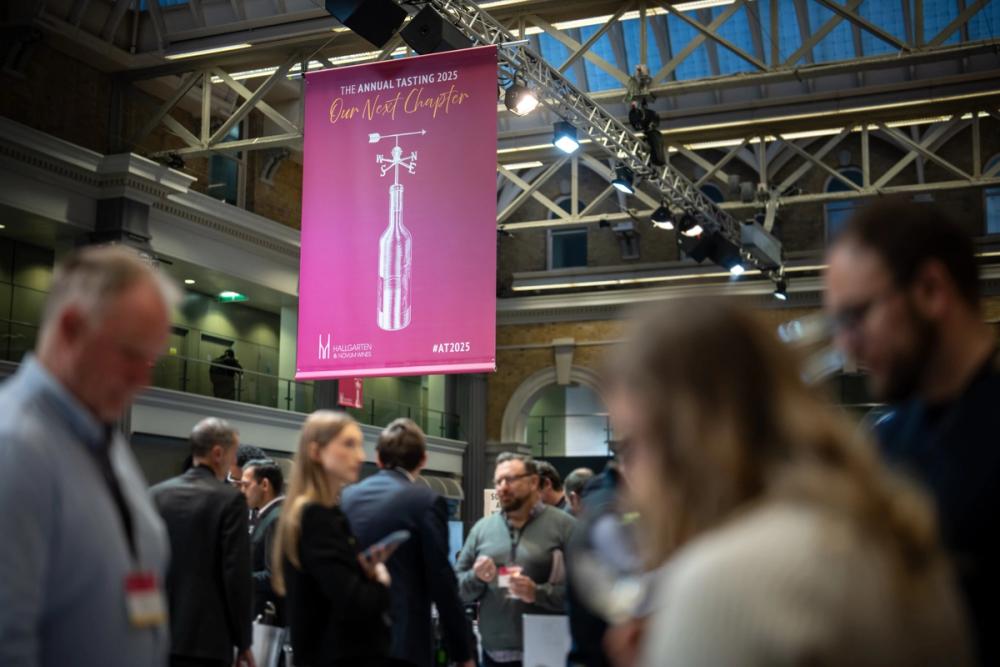
Hallgartn will be showing its new range of wines to customers at its roadshow of tastings over the next two weeks
There will be an opportunity for all of Hallgarten’s current and future customers to taste through some of the new wines and producers that come into the business in recent months at its series of tastings across the country over the next couple of weeks (see below for details).
“This is the opportunity for all our customers to taste the new wines and decide what goes on the list and what comes off. Wines that we think are appropriate for a broad customer base, are appropriate for the winter season and a chance to introduce some of our newer agencies,” says Bewes.
It will also be the chance to really see the fruits of what the Coterie deal has meant for the overall Hallgarten business and what it can now offer its ever increasing and diverse customer base.
The mood from both Bewes and Oatley is that things could not have gone better and there is plenty more to come.
As Bewes concludes: “Coterie paid good money for the business and I think they are pleased with what they have bought, and they see fantastic growth potential. From a Hallgarten perspective the team has embraced the change, risen to the challenge and are getting on with the job of delivering for their customers.”
- The Hallgarten tastings take place in Glasgow on September 16, Manchester on September 17, London on September 23 and Cambridge on September 29. Hallgarten’s main portfolio tasting will take place in London on February 2-3 2026. You can register and find out more about all of Hallgarten’s September tastings here.
- Part two of our interview with Andrew Bewes and Will Oatley will be published later in the week where they analyse just how strategically important its award-winning diversity and sustainability strategy has been, how Hallgarten is helping its customers through the hard times and what new trading opportunities they see down the line.
